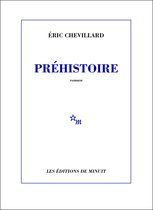FAIRE L'HISTOIRE Ebook Tooltip Ebooks kunnen worden gelezen op uw computer en op daarvoor geschikte e-readers. De la Révolution française au Printemps arabe
Afbeeldingen
Sla de afbeeldingen overArtikel vergelijken
- Frans
- E-book
- 9782204116138
- 05 september 2013
- Adobe ePub
Samenvatting
Les hommes font-ils l’histoire ? L’histoire est-elle maîtrisable ? Qui sont les « sujets » qui sont censés la « faire » ? Les grands hommes, l’avant-garde, le peuple, les masses ? Quel est le degré de conscience des acteurs historiques ? Après un siècle jalonné par des crimes de masse sans précédent, vouloir faire l’histoire ne s’est-il pas révélé un projet dangereux, inféodé aux totalitarismes ? Christophe Bouton revient sur les origines de la thèse de la « faisabilit? de l’histoire en reprenant les arguments pro et contra qu’elle a suscités. Au fil d’une analyse qui convoque des philosophes, des historiens et des romanciers sur une période allant, pour l’essentiel, de la Révolution française au Printemps arabe, il souligne, en contrepoint d’une vision trop élitiste de l’histoire, le rôle irréductible des individus anonymes dans les grands événements collectifs. En élaborant, sur la base des processus de démocratisation de l’histoire, une théorie de la responsabilité historique qui se ramifie en une éthique de la mémoire (lutter contre l’oubli des crimes de masse), une éthique de la démocratie (participer activement à la défense de ce régime), et une éthique de la nature (préserver la Terre comme base de toute histoire future), l’auteur réhabilite le rôle de l’homme acteur de son histoire.
--
Is history made my man? Can history be controlled? Who are the ‘subjects’ that supposedly constitute history? Great men, the avant-garde, the people, the masses? Just how aware are these historical figures? After a century marked by mass crimes on an unprecedented scale, isn’t making history a dangerous project, indentured to totalitarianisms? Christophe Bouton revisits the origins of the historical ‘feasibility’ theory by examining the pros and cons it aroused. In the course of an analysis that convokes philosophers, historians and novelists, of a period which basically extends from the French Revolution to the Arab Spring, he emphasises the irreducible role of anonymous individuals in great collective events, thereby counterpointing an overly-elitist vision of history. By elaborating a theory of historical responsibility based on the process of the democratisation of history, which ramifies into an ethic of memory (striving so that mass crimes should not be forgotten) a democratic ethic (actively participating in the defence of this system) and a natural ethic (preserving the Earth as a basis of all future history), the author re-establishes man’s role as a player in his own history.
Productspecificaties
Inhoud
- Taal
- fr
- Bindwijze
- E-book
- Oorspronkelijke releasedatum
- 05 september 2013
- Ebook Formaat
- Adobe ePub
Betrokkenen
- Hoofdauteur
- BOUTON CHRISTOPHE
- Hoofduitgeverij
- Editions du Cerf
Lees mogelijkheden
- Lees dit ebook op
- Android (smartphone en tablet) | Kobo e-reader | Desktop (Mac en Windows) | iOS (smartphone en tablet) | Windows (smartphone en tablet)
Overige kenmerken
- Studieboek
- Nee
EAN
- EAN
- 9782204116138
Je vindt dit artikel in
- Categorieën
- Taal
- Frans
- Boek, ebook of luisterboek?
- Ebook
- Beschikbaarheid
- Leverbaar
- Studieboek of algemeen
- Algemene boeken
Kies gewenste uitvoering
Prijsinformatie en bestellen
De prijs van dit product is 13 euro en 99 cent.- E-book is direct beschikbaar na aankoop
- E-books lezen is voordelig
- Dag en nacht klantenservice
- Veilig betalen
Rapporteer dit artikel
Je wilt melding doen van illegale inhoud over dit artikel:
- Ik wil melding doen als klant
- Ik wil melding doen als autoriteit of trusted flagger
- Ik wil melding doen als partner
- Ik wil melding doen als merkhouder
Geen klant, autoriteit, trusted flagger, merkhouder of partner? Gebruik dan onderstaande link om melding te doen.








